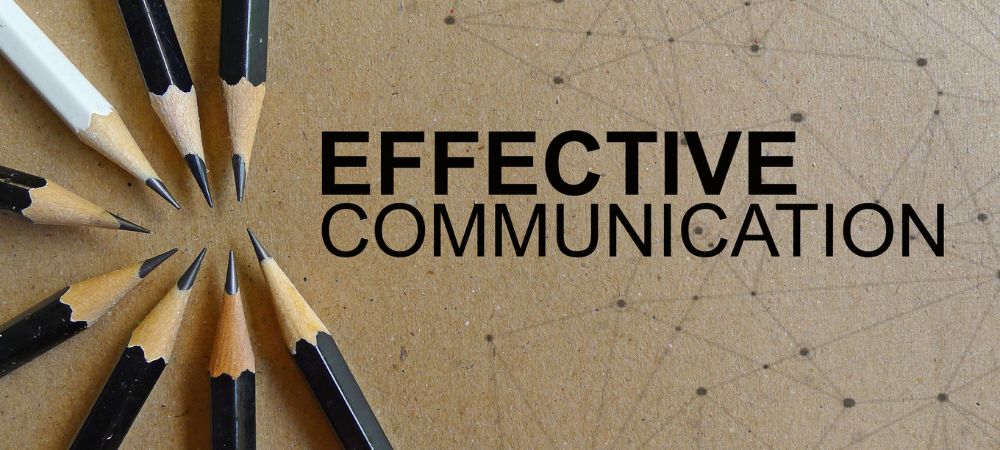Role of Communication in Cultivating a Growth Mindset for Academic and Career Advancement at NCU


It’s a well-established fact that in today’s competitive world, success doesn’t only depend on technical or hard skills, but soft skills and especially communication skills stand as the cornerstone of personal and professional success. Communication is a vital tool for motivation, guidance, learning, sharing thoughts, emotions and opinions. For students it’s important to learn how to seek feedback, face challenges and work on improvement required to fulfill their goals and ambitions, which is taken care of from the very first day they enter NCU to embark on their professional journey to fulfill their professional pursuits.
Effective communication becomes a powerful tool when paired with a dynamic and well-crafted personality that propels individuals toward their goals. We, at The NorthCap University, understand the strong relationship between personality development, and communication which acts as a harbinger of success for students pursing their courses of study here. We equip and train students to hone their communication skills and develop their personality.
Communication is not just only verbal or written communication but a tool to connect with other individuals and leave a lasting impression on their mind. It is the ability to connect emphatically that is essential for making strong bonds, reliability and trust. The NorthCap University, one of the best Universities in Haryana, gives due importance to enhance the communication skills of its students and leaves no stone unturned to holistic development of its students.
For building strong professional image and meaningful relationships with clients and customers in their professional life, students must learn to communicate clearly and emphatically. The NorthCap University focusses on Communication courses to be offered to all the students with emphasis on the practical aspects of learning. We, at NCU, have two dedicated language labs that cater to the linguistic proficiency and listening skills of the students. Listening skills is the most neglected skill in communication sphere, but one of the most important since it helps in building trust and dispels any misunderstanding or ambiguity. Here we focus on collaborative communication, which is essential in developing a growth mindset of our students. Learning and understanding the intricacies of career development take place in social and team-based activities. Group projects and presentations are given to them where they learn to collaborate and develop team player skills, which require students to share their views, opinions, knowledge and offer support and resolve conflicts.
In today’s technologically advanced world, communication mediums have increased manifold. We can communicate via emails, social media accounts, zoom meetings and virtual learning platforms. Students are guided on how to communicate via these channels, keeping in mind the sensitivity and the nature of these platforms, which spreads information like fire. They are trained to communicate positively on digital platforms, maintaining transparency and openness to communication because inclusive communication leads to supportive dialogue and builds a positive and professional image for the organisation
Students also need to learn how to control and prevent any damage control done by these digital platforms. Along with being proficient in communication skills, students are also trained on how to overcome communication barriers which they may encounter in their professional life.
Students are groomed to overcome these barriers by imparting growth-oriented communication and promoting emotional intelligence. They are encouraged to adopt diversity in their thought process, learn from mistakes and celebrate progress in goals achieved, to shift communication practices in the right direction.
Along with digital communication, focus is given on verbal communication also. Verbal communication is the most direct and explicit form of expression. Mastering the art of articulation enables our students to convey their thoughts persuasively and with impact. Clarity, brevity and tone, play pivotal roles in effective verbal communication. A well-spoken individual can captivate an audience, inspire colleagues, and foster a positive atmosphere. To achieve this, regular sessions on debates, group discussions, role-plays, extempore etc. are conducted for our students so that they can embark on their professional journey with readiness and confidence. Therefore, NCU lays emphasis on Communication courses for the holistic development of students.
Often underestimated, non-verbal cues are equally influential in conveying messages. Body language, facial expressions, and gestures can amplify or contradict spoken words. Developing an awareness of non-verbal cues allows individuals to communicate with authenticity and build rapport. A confident posture, maintaining eye contact, and mirroring gestures can enhance one’s non-verbal communication skills. Our students, with regular practice can master the art of body language, which plays a crucial role in communication, leadership, and career advancement. Positive body language makes one appear confident and trustworthy, and can land you good internships, clearing interviews, and very important during meetings with clients and customers. Calm body language is useful in handling high pressure situations like conflict resolving, negotiations etc. It also helps in building trust with the stakeholders.
Thus, we can say that communication is not merely a soft skill, but it is a strategic tool for shaping beliefs, behaviours and outcomes. We, at The NorthCap University, one of the topmost University in Haryana, understand the importance and scope of communication in both academic and career contexts through positive language, effective feedback, active listening and collaborative dialogue, our students can develop resilience, motivation, and adaptability needed to thrive in this competitive world, so that our students can create a niche for themselves by achieving their professional goals.
Author

Dr Payal Khurana
Assistant Professor (Selection Grade)
Centre for Language Learning














